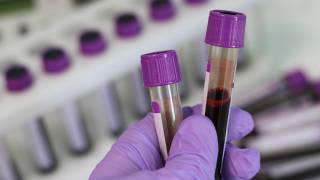Preventing Hepatitis Gains Momentum

In an effort to increase access to medication therapy, the World Health Organization (WHO) has added a new generic treatment to its list of prequalified hepatitis C medicines.
The WHO believes without a diagnosis, there’s no treatment. Without treatment, there’s no stopping the spread of hepatitis.
"There is simply no reason why many millions of people still have not been tested for hepatitis and cannot access the treatment for which they are in dire need," said Dr Gottfried Hirnschall, WHO's Director of the HIV Department and Global Hepatitis Programme.
Viral hepatitis affected 325 million people and caused 1.34 million deaths worldwide in 2015.
There are 257 million people living with hepatitis B and 71 million people living with hepatitis C - the two main killers of the five types of hepatitis.
Hepatitis C can be completely cured with direct acting antivirals (DAAs). However, only 7% of the 71 million people with chronic hepatitis C had access to treatment.
“The best way to prevent hepatitis B is by getting the hepatitis B vaccine,” said Jeremy H. Ashley, PharmD, RPh, Health Services Clinical Pharmacist with Brookshires Grocery Company.
“The hepatitis B vaccine is administered in a 3 shot series over a six month period. We offer the hepatitis B vaccine in all of our pharmacy locations, with the intent of making it easily accessible for all community members we serve,” said Ashley.
The WHO has just pre-qualified the first generic version of one of these DAAs, sofosbuvir. The average price of the required three-month treatment course of this generic sofosbuvir is US $270.
SOVALDI is a prescription medicine used with other antiviral medicines to treat chronic hepatitis C genotype 1, 2, 3, or 4 infection in adults. It is not known if SOVALDI is safe and effective in children under 18 years of age.
Approximately 75 % of Americans with HepC have genotype 1. According to the Centers for Disease Control and Prevention (CDC), HepC infection becomes chronic in approximately 75-85% of cases.
With high morbidity and mortality globally, there is great interest also in the development of new therapies for chronic hepatitis B virus infection.
According to the WHO, infants born to mothers found to be infected with hepatitis B need to be given a dose of the hepatitis B vaccine within 24 hours of their birth, followed by further doses at 1, 2 and 12 months old.
In many adults, the HepB infection does not cause obvious symptoms and typically clears up in a few months without treatment.
The most effective current hepatitis B treatment, Tenofovir, which is not curative and which in most cases needs to be taken for life, is available for as low as $48 per year in many countries.
Tenofovir (VEMLIDY) is a prescription medicine used to treat chronic hepatitis B virus in adults with stable liver disease.
The CDC Vaccine Price List provides private sector vaccine prices for general information.
Additionally, the WHO is launching new educational and communication tools to support a campaign entitled "Get the Point-Make smart injection choices" to improve injection safety in order to prevent hepatitis in healthcare settings.
The use of contaminated injection equipment accounts for a large number of new HCV and HBV infections, making injection safety an important strategy.
The World Hepatitis Summit 2017, 1–3 November in São Paulo, Brazil, promises to be the largest global event to advance the viral hepatitis agenda, bringing together key players to accelerate the global response.
Organised jointly by WHO, the World Hepatitis Alliance (WHA) and the Government of Brazil, the theme of the Summit is "Implementing the Global health sector strategy on viral hepatitis: towards the elimination of hepatitis as a public health threat".
Our Trust Standards: Medical Advisory Committee

























